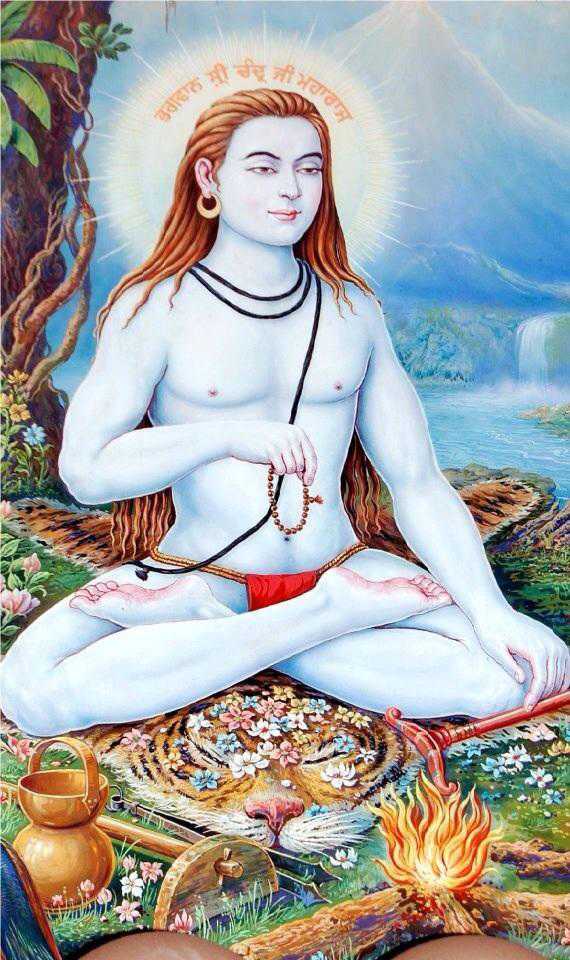Dr Satish K Kapoor
Baba Shri Chand (Shri Chandra), whose 525th birthday falls on September 7, was the elder son of Guru Nanak Dev, founder of the Sikh faith and Mata Sulakkhani Devi. He established the historical Udasi (Udasina) sect, traditionally traced from the four sons of Brahma namely Sanaka, Sanandana, Sanatana and Sanata Kumara. An udasi is one who has an ascetic outlook towards mundane life, and remains in God-consciousness.
Early life
Shri Chand (1494-1629) was born at Sultanpur Lodhi in Punjab. He had matted hair, tripundra (three horizontal lines) on the forehead, karana-kundala (a ring in right ear) and vibhuti (holy ash) all over his body, the signs which led many to describe him as an incarnation of Lord Shiva.
Shri Chand was invested with yajnopavita (sacred thread), and formally initiated into Vedic literature by Pandit Hardayal. At 11, he went to the gurukula of Acharya Purushottama Kaul in Srinagar for a comprehensive study of religious texts, and subsequently received initiation from Avinashi Muni. He became popular after humbling Pandit Somanatha Tripathi, a Sanskrit scholar, in a religious debate.
Meditation and miracles
Shri Chand meditated for hours in the solitude of forests, without any fear of carnivores. Miracles came naturally to him. At Shankheshvara (near Dvarika, Gujarat), he made a spring flow by just blowing his conch. While in Kashmir, he took out a burning piece of wood from his dhuna (hearth), and buried it, materializing green leaves, to humble the representatives of Nawab Yakub Khan, who had come to arrest him on account of his unorthodox views. At Chamba, when a boatman refused to ferry him across the Ravi, he made a large stone move like a boat.
Extensive travels
Shri Chand travelled as far as Sindh, Baluchistan, Kabul, Kandhar and Peshawar meeting holy persons of different sects and creeds. He visited Haridwar, Kailasha, Mansarovar, Nepal and Bhutan in the north, Assam and Puri in the east, Somnath in the west, and Rameshvaram, Kanyakumari and Sinhal Dvipa in the south, spreading the knowledge of the self. He made no distinction of caste and creed and brought different communities together through his message of love and peace.
Core philosophy
Shri Chanda’s philosophy is called the conjunction of the paths of devotion and knowledge. His God was both saguna (with attributes) and nirguna (without attributes). He popularised worship of five deities — Ganesha, Surya, Vishnu, Shiva and Shakti – in line with Adi Shankaracharya, to dilute sectarian differences. He believed in the theory of Karma and reincarnation. Central to his teachings were truthfulness, contentment, forgiveness, self-discipline, and the unity of mankind.
His works
Shri Chanda’s works include among others, Arta Shri Guru Nanak Dev, comprising of ten verses in honour of his father; Guru Gayatri, addressed to his spiritual preceptor; Sahasranama, ‘thousand names’ in praise of the Supreme Being; Panchadeva-shatakam, eight hymns to five deities, and Matravani (Matra shastra) a succinct presentation of the Udasi philosophy.
Memorial to Guru Nanak Dev
Shri Chand built a humble memorial to Guru Nanak Dev by salvaging the urn containing his cremated ashes from the fury of flood at Kartarpur (Pakistan), and reburying it at a place that came to be known as Dera Baba Nanak (Pakistan). Due to his humility and deep spirituality, the Sikh gurus held him in deep reverence. At Barth, his tapasthali, he anointed Baba Gurditta, son of Guru Hargobind, as his successor, investing him with the Udasi insignia – seli (woolen cord), topi (cap), and much more besides. A gurudwara in his name stands there. Udasin Ashram, Jalandhar, presently run by Swami Shantananda, is doing yeoman’s service in spreading the universal teachings of Shri Chand, for the moral upliftment of society.
(Dr Kapoor is a noted educationist, historian and spiritualist)
Unlock Exclusive Insights with The Tribune Premium
Take your experience further with Premium access.
Thought-provoking Opinions, Expert Analysis, In-depth Insights and other Member Only Benefits
Already a Member? Sign In Now











